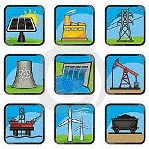Department of Agricultural Economics: Undergraduate Research

Op-Eds from ENSC230 Energy and the Environment: Economics and Policies
Date of this Version
Fall 12-23-2017
Document Type
Editorial
Citation
Op-ed from ENSC 230. Energy and the Environment: Economics and Policy, University of Nebraska-Lincoln, Department of Agricultural Economics, Fall 2017
Abstract
Malnourished children and tired men chip away with ancient tools at Cobalt-containing rock for you to have the next best electronic device. The impoverished, artisanal workers of the Democratic Republic of Congo (DRC) supply up to 25 percent of global Cobalt according to The Washington Post. The battery manufacturers don’t care. Their dominant thought is profit.
Artisanal workers are paid between two and three U.S. dollars a day. “We are suffering. And our suffering is for what?”, 29-year-old digger, Nathan Muyamba, told The Post.
The batteries in phones, laptops and for some, their cars, contain Lithium, Cobalt, Nickel and other trace metals to provide energy for their operation. Cobalt is the exclusive metal used as a cathode in many batteries and is an essential piece in energy storage.
65% of Cobalt is sourced from the unstable and disadvantaged country of the DRC, according to Electrek.com. With escalating demand for Lithium-ion batteries, more Cobalt is being requested by manufacturers to fulfill their requirements. In fact, total demand for Cobalt is expected to double by 2025 to over 76,000 tons per year.
With soaring demand, the price of Cobalt has nearly doubled this year; up to $58,000 a ton, according to the September 2017 CNN article.
This market resembles an economic relationship known as Dutch disease, where a foreign currency influx increases due to the finding of a rare and highly-demanded resource. As a result, other exports of this country become less valuable, and for the DRC’s instance, Cobalt becomes a resource which is highly profitable and popular.
Our “green” electric vehicles are not off the hook. We are told our electric vehicles sitting in the driveway help save the polar bears and the environment, but we haven’t been fully informed. An electric vehicle contains 10-20 pounds of Cobalt in its battery pack; that is quite a few trips down the tunnels in the Cobalt mines.
Now what about battery recycling? According to the Science Daily article, exhausted lithium ion batteries need to be heated to 1292°F to calcinate the metals. Then strong acids, like sulfuric acid, are used to extract the lithium, cobalt, and other metals. Extraction rates for cobalt are 25% efficient, while lithium is 50%.
The unintended consequences of buying an electric vehicle or new cell phone need to be internalized. We cannot let the market for Lithium-ion batteries become corrupted and hinder our movement of revolutionizing the transportation sector, the electronic sector, and maybe the most important, the battery storage sector. “Green” energy is the future, and we must get this issue right.
To protect the livelihood of families in the DRC, the price of Cobalt needs to incorporate costs other than private costs; it needs to include social costs. First, battery companies like LG Chem and Samsung SDI must start tracking their sources of Cobalt. This will allow for manufacturers, such as Apple, to have the option to exclusively buy from battery suppliers who use “artisanal worker-free” Cobalt. By transitioning the demand to only conflict-free sources, artisanal workers will not be forced to work in dangerous environments. As a result, these artisanal workers will benefit from improved conditions.
Will it take time, money, and effort to get the Cobalt market on the right track? Yes, it will. Is recycling the answer? I believe it is a step in the right direction, but it is not the exclusive solution. Even so, the question is, are you okay with paying a little extra for your next laptop to save a life?
The market for Cobalt is increasing as Lithium-ion batteries continue to be used in more and more devices, but if we don’t end the market for artisanal workers, the lives of many in the DRC will forever be poverty-stricken.
Included in
Environmental Indicators and Impact Assessment Commons, Natural Resources and Conservation Commons, Oil, Gas, and Energy Commons


Comments
Copyright 2017, Jace Kranau. Used by permission